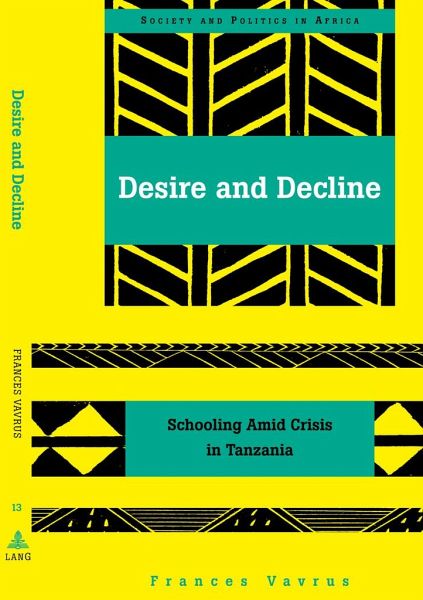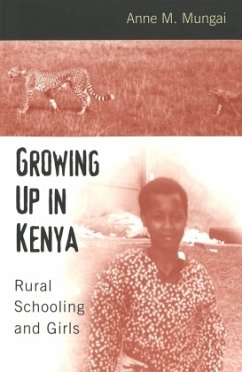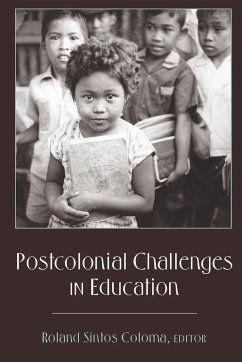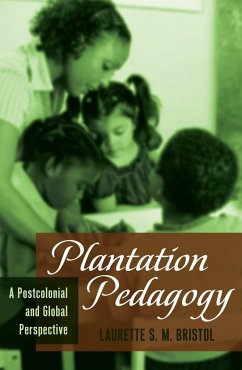
Desire and Decline
Schooling Amid Crisis in Tanzania
Versandkostenfrei!
Versandfertig in 6-10 Tagen
38,00 €
inkl. MwSt.

PAYBACK Punkte
0 °P sammeln!
Desire and Decline explores the privileged place of education in local, national, and global development discourses about population, HIV/AIDS, and environmental conservation. «Desire» signals the global consensus on the view that education is central to solving problems of development. «Decline», on the other hand, draws attention to the growing gap between those who have access to basic social services - such as education - and those who do not. Based on multiple periods of fieldwork on Mount Kilimanjaro, Frances Vavrus links local and global narratives about the potential of education t...
Desire and Decline explores the privileged place of education in local, national, and global development discourses about population, HIV/AIDS, and environmental conservation. «Desire» signals the global consensus on the view that education is central to solving problems of development. «Decline», on the other hand, draws attention to the growing gap between those who have access to basic social services - such as education - and those who do not. Based on multiple periods of fieldwork on Mount Kilimanjaro, Frances Vavrus links local and global narratives about the potential of education to enhance development but also reveals its limitations in postcolonial countries experiencing the pressures of globalization. Vavrus concludes with portraits of local development initiatives that leave readers with a clear sense of the complexity of education's role in development, and the importance of political economic analysis for global population, health, and environmental policy.












